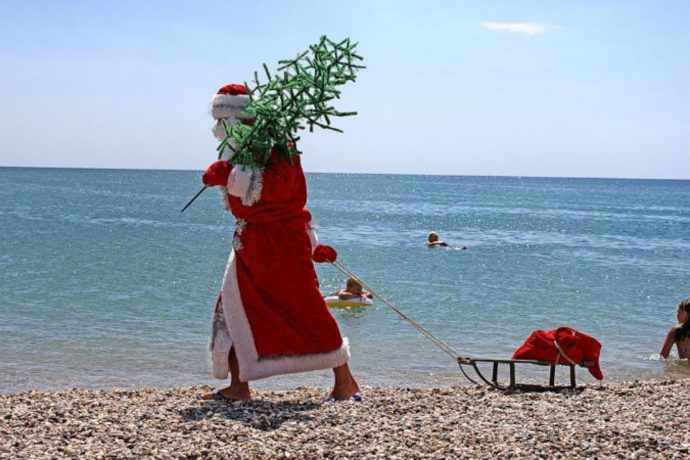Deceived tourist: how to avoid the tricks of fraudsters
 Along with the sights, customs, culture, food and shelter, it is important to know the traditional schemes of deceiving tourists. Destinations – Egypt, Turkey, Asia, and in Europe fraudsters are not far behind.
Along with the sights, customs, culture, food and shelter, it is important to know the traditional schemes of deceiving tourists. Destinations – Egypt, Turkey, Asia, and in Europe fraudsters are not far behind.
A special business is considered to be fraud in Egypt. For example, a gemstone figurine may turn out to be colored soap. And you can get into such a trap when the camel refuses to bend down so that you climbed out of it, without paying the Bedouin a good amount. Especially often trapped fall vacationers who ride a taxi. Therefore, it will be important to drive only a car equipped with a meter, and the amount worth negotiating with the driver right away. Do not exchange money to the taxi driver.
In agility with the Egyptian taxi drivers can only compete with the Turkish. In Turkey, girls are often deceived in bars. Often, the local “macho” meet with the girls, make an order, treat, and then disappear.
Thais are not as friendly as it seems at first glance. When ordering an excursion on the street, you risk being in the jewelry store instead of a chic palace, where you will be forced to impose glass trinkets disguised as natural stones. When renting a car, motorbike or bicycle, you can run into the accusation that you scratched the vehicle and have to pay a large fine. And with the help of piquant photos, foreigners are often lured to a “free” erotic show, but in the end they are not released from the club until the tourist pays.
On the “paradise island” of Bali animals cheat. Near the temple, Uluwatu is hunted by monkeys, which pull off visitors: chains, glasses, earrings, rings, even climb into backpacks and bags. Therefore, going here, it is better not to take with you anything of value and remove all the jewelry.
The main “enemy” of a tourist in India is skin color. Money is earned at every turn and by any method. For example, taxi drivers like to organize a “cultural program” for foreigners, carrying them solely on souvenir shops.
At each step, tourists are expected to have “win-win lotteries, and when you try to give a beggar a man, 20 people will pick up after him.
In China, they profit from pearl and silk lovers, selling fake products at the price of natural materials. And in “the most romantic France” they will simply play on your feelings. A fake Frenchman gives a bouquet to his woman, and after a few meters his friends demand 30 euros for them. The saddest thing is to expect fashionistas: fake Louis Vuitton bags, and other branded items, for trying to remove which you can be on the “black list” of the police.
Fraud is not alien to the Italians. On the squares you can meet a lot of cheaters who collect money under the guise of charitable organizations. The most favorite scam sites are the Colosseum and St. Peter’s Cathedral. Having received for a good amount you can promise to spend on a tour without a queue, and, having received the amount on hand, a person disappears. But in Italian restaurants carefully check the bill: you can find dishes in it that no one ordered.
In the homeland of bullfights and flamenco (Spain), the most popular trick to weaning money from foreigners is the request of another “tourist” to take a picture of it. He hands over a camera to his victim, but while she is focusing, the “policeman” is already grabbing her hand and is charging her with theft. Hush up it will be possible only for a tidy sum.
In Cuba, deceive those who love to poke. Instead of expensive cigars, they often sell a fake, especially if the buyer does not understand anything about them.



